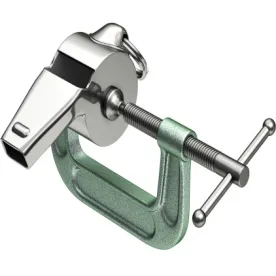On November 16, 2015, the Securities and Exchange Commission’s Office of the Whistleblower (“OWB”) released its fifth Annual Report on the Dodd-Frank Whistleblower Program to Congress, which details information on OWB’s activities and bounty payouts for the fiscal year, as described in our posts on the 2012, 2013 and 2014 Annual Reports.
In its 2015 report, the SEC highlights that since the inception of the whistleblower program in 2011, the Commission has paid more than $54 million in awards to a total of 22 whistleblowers, with more than $37 million paid in 2015 alone. The SEC also stressed that increased public awareness of the whistleblower program had led to a “substantial growth” in the number of whistleblower tips it received. In addition, the Commission pointed to several important actions it took in 2015 aimed at protecting whistleblowers from unlawful retaliation or attempts to interfere with their ability to report to, and cooperate with, the SEC.
Eight Awards Totaling More Than $37 Million Paid in FY2015
OWB paid more than $37 million to eight whistleblowers during Fiscal Year 2015, including an award of $30 million to a single whistleblower, the highest award to date under the program. Although the order approving this award was issued near the end of Fiscal Year 2014, the actual payment of this award occurred at the beginning of Fiscal Year 2015. The other awards ranged from $325,000 to more than $3 million. These awards included an award of over $1 million to a compliance officer (the second ever award to a compliance employee and the first time the SEC utilized the “substantial injury” exception), an award of over $600,000 in the SEC’s first anti-retaliation case, and a half-million dollar award to a former company officer (the first of its kind).
As it has done in its previous reports, the SEC pointed out that that “[t]here are commonalities among the tips or complaints that were submitted by these successful whistleblowers.” The Commission explained that the information provided by award recipients identified specific individuals involved in the fraud or pointed to specific documents that substantiated their allegations. The Commission also highlighted that these whistleblowers timely reported the alleged misconduct as it was relatively current or ongoing. According to the Commission, over almost half of the award recipients were current or former employees and approximately 80% of these whistleblowers raised their concerns internally before reporting to the SEC. In addition, approximately 20% of these individuals submitted their information anonymously through counsel.
The SEC also noted that factors that may decrease an award include whether: (1) the whistleblower was involved in the underlying misconduct; (2) interfered with internal compliance systems; or (3) unreasonably delayed in reporting the violation. Although the Commission reported that it has not yet addressed the first two of these factors in any award determinations, approximately 20% of the awards made to date have been reduced because of an unreasonable reporting delay.
Continued Increase in Whistleblower Tips Reported
The number of whistleblower tips received by OWB has continued to increase each year since the program’s implementation, with a 30% increase from 2012 to 2015. In 2015, OWB received nearly 4,000 whistleblower tips, which is more than the 3,620 in 2014, the 3,238 in 2013 and the 3,001 in 2012. The three most frequent types of complaints have remained consistent since the program’s inception, with the most common reports being corporate disclosures and financials (17.5%), offering fraud (15.6%), or manipulation (12.3%).
OWB received complaints from all fifty states, as well as from the District of Columbia and the U.S. territories of Puerto Rico and the U.S. Virgin Islands, with the highest number of complaints coming from California (646), New York (261), Florida (220) and Texas (220). In addition, OWB received whistleblower reports from individuals in 61 foreign countries. Besides the United States, OWB received the highest number of tips in 2015 from the United Kingdom (72), Canada (49), China (43), India (33) and Australia (29).
Despite the continued increase in whistleblower tips, the percentage of tips that lead to awards remains extraordinarily low.
SEC Brought its First Enforcement Action on Employee Confidentiality Agreements
Consistent with its report that it was working to protect whistleblowers from attempts to interfere with their ability to make complaints, in April 2015, the SEC brought its first enforcement action under the SEC’s Rule 21F-17, which prohibits any person from taking “any action to impede an individual from communicating directly with the Commission staff about a possible securities law violation … .” This action concerned a confidentiality agreement that the company had used in some of its internal investigations which included language warning witnesses that they could face discipline or even be terminated if they discussed the subject of the investigation with outside parties without prior approval. The SEC noted that it was unaware of any instance in which a company employee had in fact been prevented from communicating directly with the Commission or in which the company had taken any action to enforce its confidentiality agreement to impede or chill any such communications. Nevertheless, the company agreed to pay a $130,000 penalty to settle the Commission’s charges and voluntarily amended its confidentiality agreements.
SEC Issued Interpretive Rule Regarding Definition of Dodd-Frank “Whistleblower”
On August 4, 2015, the SEC issued an “interpretive rule” to clarify that individuals who have only made an internal complaint of an alleged securities law violation but have not reported that alleged misconduct to the SEC may nevertheless qualify as “whistleblowers.”
In issuing its rule, the SEC stated that the definition of “whistleblower” for purposes of Dodd-Frank’s employment retaliation provision is “ambiguous” but that the SEC’s interpretation “best comports with our overall goals in implementing the whistleblower program.”
The Commission noted in the report that it issued its rule in response to the disagreement amongst courts regarding the scope of Dodd-Frank’s employment retaliation protections, and that it had also filed numerous amicus curiae briefs in private Dodd-Frank retaliation actions to “urge district courts and courts of appeal to defer to the SEC’s rule … .” The report also acknowledged the recent Second Circuit decision in Berman v. Neo@Ogilvy LLC, which created a Circuit split, when it rejected the Fifth Circuit’s holding in Asadi v. G.E. Energy (USA), L.L.C. and held that Dodd-Frank also protects internal whistleblowers.
Implications
Given the continued expansion of its enforcement efforts and the SEC’s view of itself “as the whistleblower’s advocate,” we expect the SEC to continue expanding the whistleblower program in 2016 by promoting whistleblower awards and protecting whistleblowers from retaliation.
Public awareness of the whistleblower program will also continue to increase, especially in light of the well-publicized “blockbuster” $30 million award paid this year, resulting in a further increase in the number of whistleblower complaints filed with the SEC in 2016.





 />i
/>i


